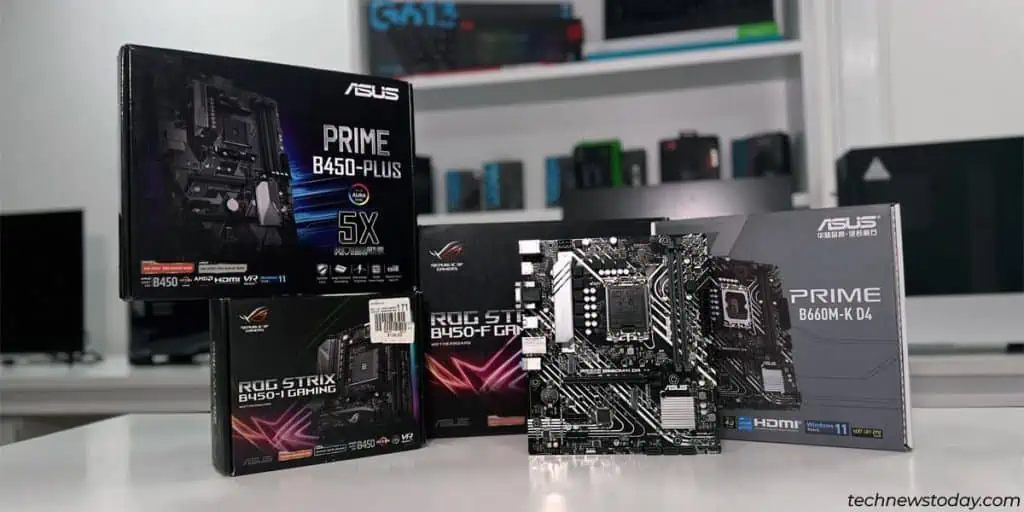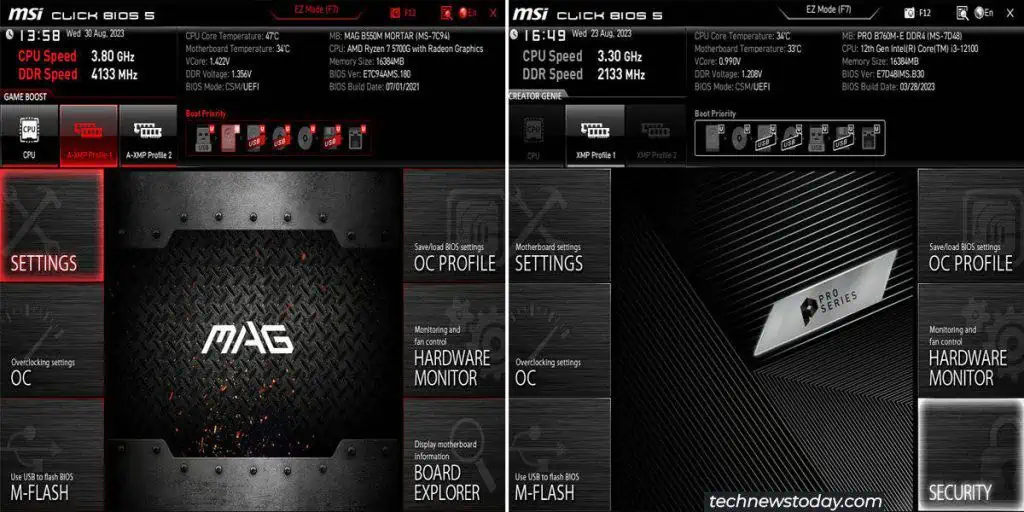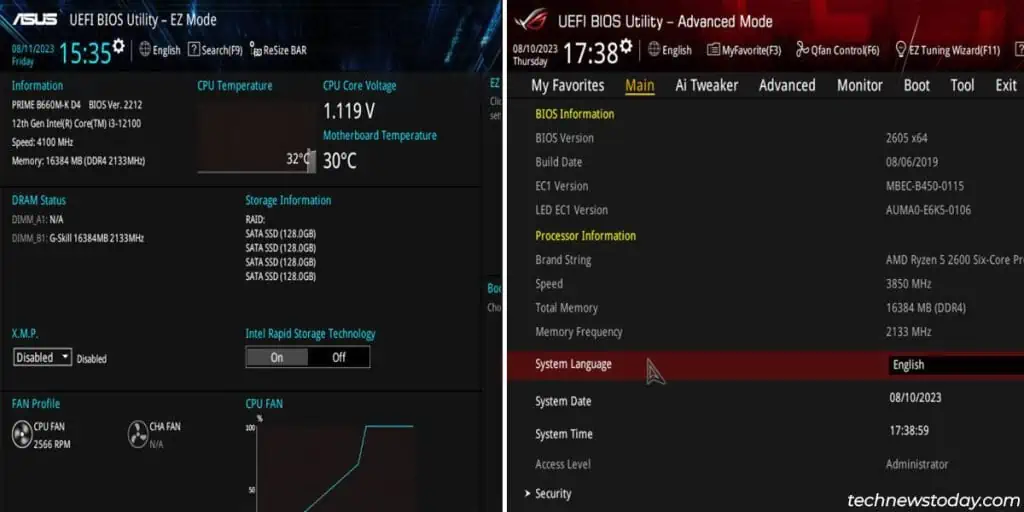ASUS and MSI are the two biggest players in the motherboard market. It’s not very fruitful to compare them as a whole, but if you put two similar boards together, some impactful factors will certainly stick out.
Comparatively, MSI boards may provide the same features at a lower price point. But, ASUS’s AI overclocking might interest you if you’re just getting into overclocking. Or, you might prefer the BIOS UI of one manufacturer over the other.
If you’re stuck and can’t choose between similar MSI and ASUS boards, this article will help you make a more informed decision.

How to Choose the Best Motherboard For You
Whenchoosing a motherboard, what matters most iswhether the chosen model is the best fit for you. In general, focus on factors like:
I’m mentioning this because manynew PC buildershave this misconception that products from one brand are entirely better than the other. But this is not true.
Instead, you should first think about the aforementioned points to filter your options down to a few motherboards.

Once you find identical boards from both brands, that isonlywhen the brand name should come into play.
MSI Vs ASUS Motherboards – How Are They Different?
MSI and ASUS differ in a lot of ways. They have different product lines, trademarked technologies, etc.
But these aren’t valid points of comparison. Let’s instead focus on the things that we can compare side by side.

You’ve likely heard the term “ASUS tax” if you’ve been in PC-building circles for a while. This originates from the trend of ASUS products costing more due to the brand name.
This is a particularlyimportant detail forbudget or mid-range builds.
Among two similar-spec boards from MSI and ASUS, if the MSI board is considerably cheaper, it makes sense to pick it.

In some cases, the cheaper MSI board may even provide extra features like WiFi or USB-C that are lacking on the ASUS board.